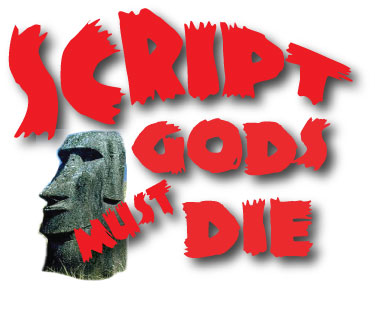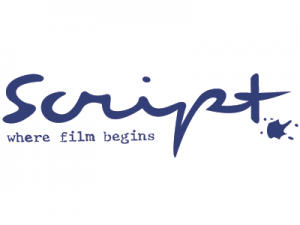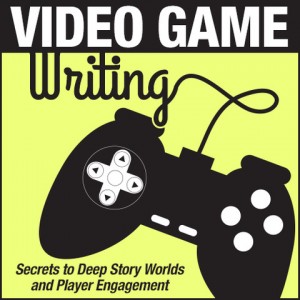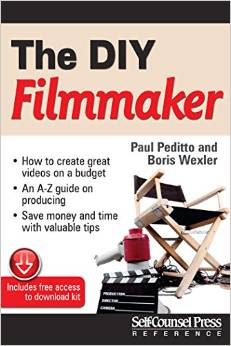I’ve highlighted Script Magazine often here at Script Gods. Yeah, I’m a Homer because I write for them, but there’s excellent content over there curated by my editor Jeanne Bowerman. This will be last time to the well for the 2016 articles. Guaranteed there’s something to help you here, Good Reader. Check it out…
- WHERE’S MY MONEY?
Excellent post by Christopher Schiller on the legal aspects of getting paid as a screenwriter. Got your interest? Here’s a sample:
“Fans of Major League Baseball may realize that each team’s ballpark is shaped completely differently than all the others. From the dimensions of the field to the capacity of the crowd on down, there’s a great variety among them. Keep this in mind when seeking a “ballpark” figure for your sale. But just like there’s a set 90 feet between the bases, there are some commonalities you can look to to get a sense of the playing field for pricing your works.
For a starting point, a writer can look to the Writers Guild of America or WGA’s Basic Minimum Agreement (BMA) for minimum levels for nearly every facet of writing agreed to between the Guild and their signatory producers. The copious clauses and stipulations set out in detail all the specifics of the minimum dollar figures, requirements, conditions and schedules for each stage of typical agreements. Even with all their years of negotiations and deal making behind them there are still some areas that aren’t quite hammered down, such as just how much of work can be included in a polish before it becomes a new draft and triggers a different pay amount. But most of the minutia is at least addressed well enough to ease a writer’s mind.”
- WRITING THE FIRST DRAFT
Loved this article by Rob Tobin on writing the first draft, cultivating the proper mentality, keep realistic goals, “penstorming” and style copying. Sample…
“I first came across penstorming during a financial workshop I attended many years ago. The workshop leader had us take pen in hand, and begin writing. There were no rules or instructions, other than we were not to stop, even for a moment, until she told us to. In essence, then, it was freewriting without even the restriction of remaining focused on a particular topic. At the end of fifteen minutes, there wasn’t a person in that room who wasn’t astounded at the revelations and perceptions staring up at them from the page.
Penstorming might seem too chaotic to produce anything of worth to a writer. In fact, however, the complete freedom which penstorming allows is what makes it such a valuable technique, especially for writers looking for topics on which to write. In freewriting, the restriction of having to stay on topic helps the writer produce something specific to the article he is writing, but restricts him from discovering new topics. Penstorming allows the writer to roam about at will, from the sublime to the ridiculous, from topic to topic.”
- WRITING FOR VIDEO GAMES
Here’s a topic I don’t often cover, writing for video games. Ashley Scott Myers interviews Justin Sloan and Stephan Bugaj here.
“Stephan Bugaj and Justin Sloan talk about how to have a successful career as a video game writer. They also discuss about their new book, Creative Writing Career 2, and some of the lessons they learned from conducting interviews with many successful screenwriters.”
- WRITING A TV SERIES WITHOUT WHINING
Heather Hale had me laughing with this article from the producer’s side about TV writing and lessons she teaches her students. Good stuff…
“While it’s still wildly skewed young, white male, look at its trajectory: more women, more people of color, a wider range of ethnicities – and sexual and political orientations. Hollywood’s getting older. Growing up. And getting more worldly. The people of power in Hollywood, who no longer control but still have an undeniable influence on the images we see in the media (thus our global future) are increasingly reflecting our multi-cultural population. And I think that’s a great thing.
We all have stories to tell. And we all want to be heard. But to be in those prime seats, you’ve got to do the grunt work to compete with the Pros. Yes, of course: luck and breaks and timing and nepotism and a whole slew of other factors all play a role – but when you get right down to it: Hollywood is no different than any other high bar pursuit. Just like in the NFL, NBA, NASCAR, the Triple Crown, (enter any elite competition or achievement here): the difference between the winner and the “loser” is minuscule – and most often fleeting. There are thousands of runners breathing down the neck and nipping at the heels of the marathoner whose chest barely breaks that finish line ahead of them.”
- YOUR TV GUIDE TO THE PILOT
Another great article for TV pilot writers comes from Tawnya Bhattacharya on the why now of why you’re writing your pilot. Also some great stuff on TV Pilot structure. A little bit, here…
“You’ve probably heard this expression lots of places, whether it’s in the room during a pitch or flying around in your periphery during networking mixers. Why all the fuss over the why now? Because there are hundreds of shows to choose from, a number that is only growing exponentially, and when people ask you about the “why now” of your pilot, what they’re really asking is why should your audience care? A good “why now” can hook your audience from the first shot; it can make them empathize with a character instantaneously, or viscerally pull them into your world from the very beginning.
A good Why Now checks at least these three boxes:
PILOT WHY NOW: What makes today different than any other day for your Main Character?
Why is today the day we drop in on our main character’s life, rather than in three years or two weeks from now? What makes today special as opposed to any other day? There are some great, clear examples of this. Orange is the New Black starts the day Piper goes to prison. The Buffy pilot starts on Buffy’s first day of school in a new town. The pilot of UnReal starts on Rachel’s first day back at work after a nervous breakdown. The pilot of Unbreakable Kimmy Schmidt starts when Kimmy escapes 13 years of captivity in a bunker and enters the real word for the first time. Notice a pattern here? A trick if you’re stuck is to make list of important pivotal or seminal moments for your main character and work from there.”
- TRADEMARKS DEFINED
Two parter can be found here and here on a subject new writers don’t often consider, but should: Trademarks. Great work by Christopher Schiller again. Thank you, sir! A taste….
“You may be wondering what is the difference between a trademark and a logo or company brand, slogan or similar? Sometimes, there is no difference because the company has registered or uses the unique identifier as a mark for their goods or services. But it isn’t always the case. And some instances wouldn’t qualify. The big, yellow circle happy face created by Harvey Ball, for example. It was used in a short-lived marketing campaign for a bank and was never pursued as a trademark for the company that commissioned it. It is certainly a world recognizable symbol, but, it isn’t a trademark in the U.S. where it was first used. (If you go to France there may still be someone who argues differently, which proves that internationally, trademark is complex and as always, it depends.)
Whether something is used as a trademark and gets protections as such depends on a lot of things. The most important one is, use.”





